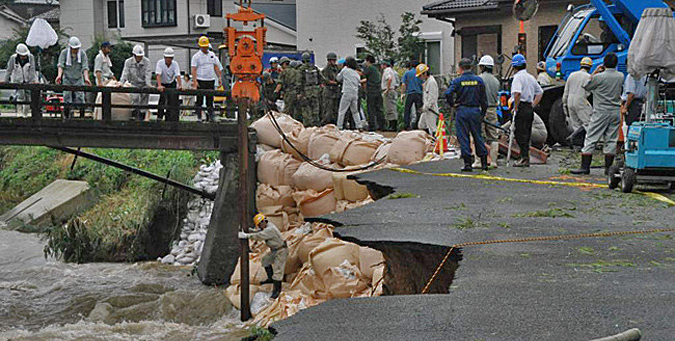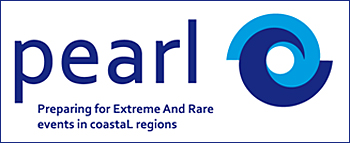UNESCO-IHE leads consortium to develop risk management strategies for coastal regions

A research consortium of 24 partners, led by Delft-based Unesco-IHE Institute for Water Education has been awarded a grant of five million Euro by the European Union for the research project Preparing for extreme and rare events in coastal regions (PEARL).
The Pearl project is part of the FP7 programme and will be led by Dr. Zoran Vojinovic, associate professor of urban water systems at Unesco-IHE.
Risk management strategies
The main goal of Pearl project is to develop adaptive, sociotechnical risk management strategies and measures against extreme hydro-meteorological events minimising social, economic and environmental impacts and increasing the resilience of coastal communities.
The project will examine 7 case studies from across the EU, 2 case studies from the Caribbean (st. Lucia and St. Maarten) and 3 from Asia (Japan, Thailand and Taiwan).
The case studies will give input to the development a holistic risk reduction framework that can identify multi-stressor risk assessment, risk cascading processes and strengthen risk governance by enabling an active role for key actors.
Clusters around work packages
This 4-year research project (2014-2018) is jointly executed by 24 partners and it is clustered around 7 work packages:
● WP1 understanding formation of vulnerabilities and risk in coastal regions,
● WP2 understanding formation of hazards under extreme events,
● WP3 holistic and multiple risk assessment,
● WP4 flood early warning systems for coastal regions,
● WP5 decision support and policy development for strengthening resilience of coastal regions,
● WP6 case studies and
● WP7 dissemination and communication.
 Beyond the state of the art
Beyond the state of the art
More specifically, the Pearl project aims to progress beyond the state of art in a series of domains, including:
● development of a holistic risk governance approach based on co-evolutionary complex systems analysis;
● broadening the scope of risk assessment by incorporating aspects such as social justice and social contract into the analysis while investigating issues of risk evolution for the complete socio-technical system of the coastal regions;
● improvement of knowledge and understanding of formation of vulnerabilities and risk in coastal regions;
● development of adaptive and resilient strategies utilising structural and non-structural measures, ecosystems-based approaches and promoting active stakeholder participation;
● development and testing of new concepts and tools for strategic and operational planning purposes, event prediction, forecast and early warning technologies to management of critical infrastructures (e.g. ports, drainage systems, flood defences or coastal barriers).
This news item was originally published on the website of Unesco-IHE.
More information
Unesco-IHE
Delft, the Netherlands
+31 15 215 18 04
www.unesco-ihe.org



